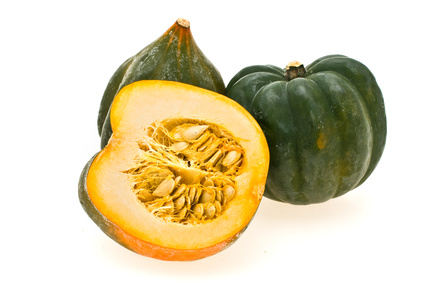
Health Benefits:
Anti inflammatory
Fights free radicals
Improves bone and muscle health
Increases immunity
Lowers blood pressure
May reduce cholesterol
May regulate blood sugar
Promotes eye health
Reduces risk of lung cancer
Nutrition:
Serving size: 1 cup cubes; Calories: 56; Fat: 0.1g; Cholesterol: 0mg; Sodium: 4mg; Carbs: 15g; Fiber: 2g; Sugars: 0g; Protein: 1.1g; Potassium: 13%DV; Vitamin A: 10%DV; Vitamin C: 25%DV; Calcium: 4%DV; Iron: 5%DV
Did You Know?
- Acorn squash is a relative of both the melon and the cucumber
- Commonly known as Pepper Squash
- Acorn squash has been proven to help regulate blood sugar
Ways to Eat:
- Baked
- Grilled
- Stuffed
- Sauteed
- Steamed
- Raw
- Seeds are edible, too
Farming Trivia:
- Winter squashes are gourds and have been served as containers or utensils because of their hard shells
- Native Americans roasted or boiled the squashes and pumpkins and preserved the flesh as conserves in syrup
- Virginia and New England settlers were not very impressed by the Indians’ squash until they had to survive the harsh winter, at which point they adopted squash and pumpkins as staples
Note: Always consult a physician for any specific health questions and concerns. Some of this information may be subject to change should there be any new findings from Federal Health Administration (FHA), Food & Drug Administration (FDA), American Medical Association (AMA), American Cancer Society (ACS), and / or other leading food, nutrition and medical advisors.

